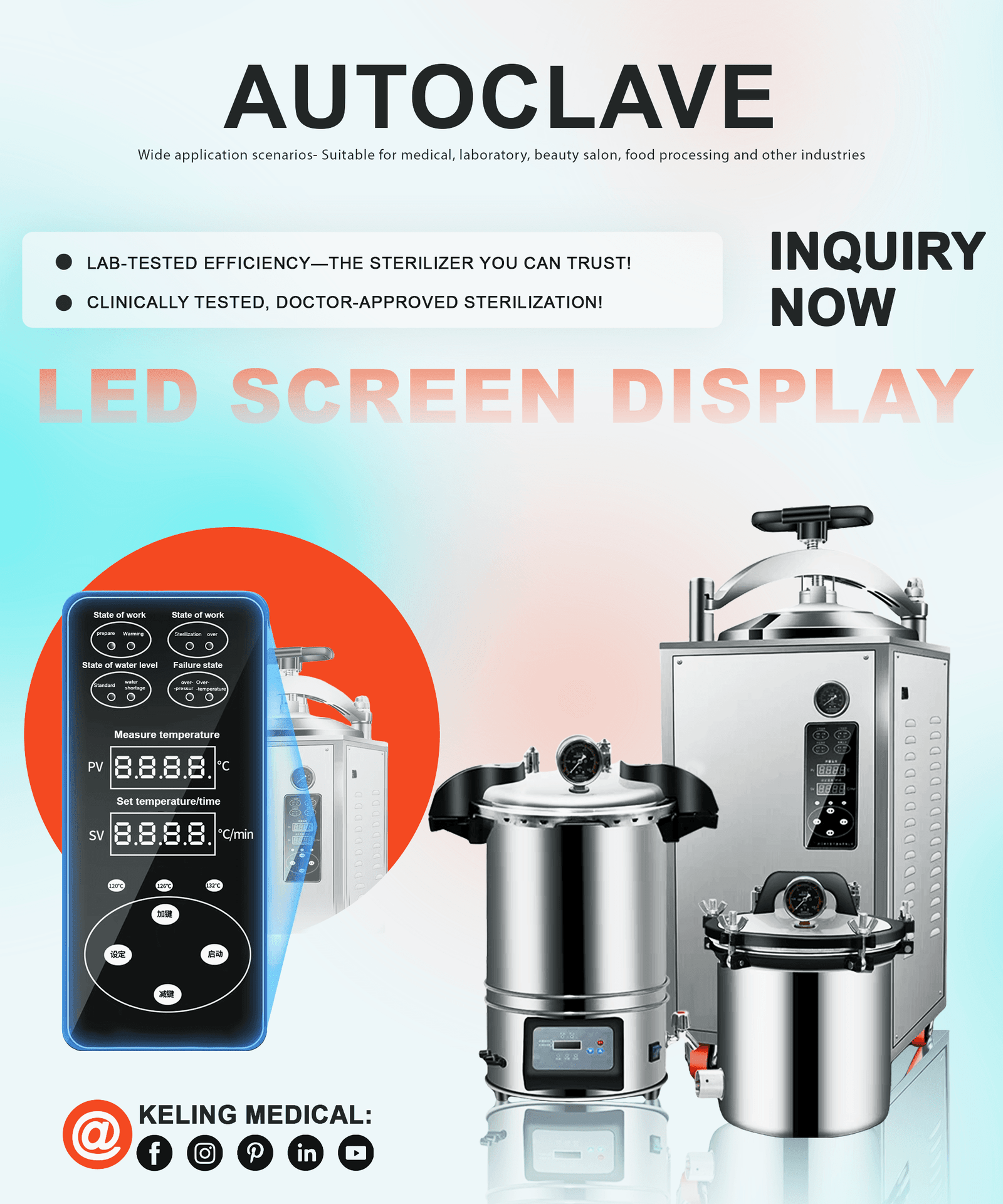
Global Industry Outlook:
The market is set to grow at a CAGR of 8.2% between 2024 and 2030 because of the enforcement of more rigorous sterilization standards.
Key market regions include North America with a 35% market share and Asia-Pacific which shows a growth rate of 25%.
Key Buyer Priorities:
Adherence to EN 13060 (Class B standards) and AAMI ST79 requirements is mandatory.
The autoclave models use 30% less power compared to previous designs.
Core Components & Performance:
The autoclave chamber is built from 316L stainless steel and includes 3-layer insulation designed for 18L to 50L capacities.
The cycle efficiency includes pre-vacuum cycles ranging from 20 to 45 minutes along with drying accuracy that maintains ±1% residual moisture.
The autoclave includes auto-lock doors as well as pressure sensors combined with dual cooling systems to enhance safety features.
Certification Readiness:
The unit comes with pre-installed documentation that meets FDA standards as well as CE marking and ISO 13485 requirements.
Third-party test reports such as those from TÜV SÜD can be provided upon request.
OEM/ODM Services:
Branding options include laser-engraved logos along with custom color panels and user interface language localization.
The device supports voltage adjustments between 110V and 240V and features dual water inlet systems.
Packaging & Logistics:
Export-ready wooden crates with anti-vibration padding.
Order fulfillment through DDP (Delivered Duty Paid) and FOB (Free On Board) terms ensures seamless delivery operations.
Volume Discount Models:
Tier 1 (1–50 units): 5% discount.
Customers purchasing between 51 and 200 units qualify for a 12% discount and receive a complimentary spare parts kit.
Total Cost of Ownership (TCO):
Each unit saves $1,200 annually on energy compared to non-certified alternatives.
The extended warranty provides 5 years of protection for both the chamber and heating elements.
Technical Assistance:
Continuous remote troubleshooting available round-the-clock through Keling’s exclusive IoT platform.
On-site training modules for distributor teams.
Inventory Management:
Just-in-time (JIT) restocking with 15-day lead times.
Consignment stock agreements for high-volume partners.
Dental autoclave sterilizers for medical equipment distributors need to meet regulatory standards while incorporating technical advancements and supporting distributor profit margins. Manufacturers such as Keling Medical focus on OEM flexibility while offering bulk-order benefits and lifecycle support which allows resellers to establish long-term client relationships and identify new market possibilities.
Q1: Are your autoclaves compatible with dental handpieces and implants? Yes, our Class B autoclaves support sterilization of hollow instruments (e.g., turbines) and wrapped cassettes.
Q2: Can I customize the autoclave’s control panel language? We offer 12 language options, including Spanish, French, and Arabic.
Q3: What’s the minimum order quantity (MOQ) for OEM orders? MOQ starts at 20 units for branded orders. Non-branded orders have no MOQ.
Q4: How do you ensure shipment safety? All units undergo pre-shipment testing and are packed in IP67-rated, humidity-controlled crates.
Q5: Do you provide marketing collateral for resellers? Yes, we supply high-resolution product images, 3D renderings, and compliance brochures.
Elevate your dental equipment portfolio with certified, high-margin autoclaves. Contact us for tailored quotes and samples:
Email: inquiry@shkeling.com
WhatsApp: +86 182 2182 2482
Website: https://autoclaveequipment.com

The autoclaving process serves as an essential sterilization practice utilized across medical, laboratory, and research facilities to protect glassware and instruments through effective sterilization. High-pressure steam eliminates pathogens during this

The autoclaving process serves as an essential sterilization practice utilized across medical, laboratory, and research facilities to protect glassware and instruments through effective sterilization. High-pressure steam eliminates pathogens during this
The autoclaving process serves as an essential sterilization practice utilized across medical, laboratory, and research facilities to protect glassware and instruments through effective sterilization. High-pressure steam eliminates pathogens during this
The autoclaving process serves as an essential sterilization practice utilized across medical, laboratory, and research facilities to protect glassware and instruments through effective sterilization. High-pressure steam eliminates pathogens during this
The autoclaving process serves as an essential sterilization practice utilized across medical, laboratory, and research facilities to protect glassware and instruments through effective sterilization. High-pressure steam eliminates pathogens during this
The autoclaving process serves as an essential sterilization practice utilized across medical, laboratory, and research facilities to protect glassware and instruments through effective sterilization. High-pressure steam eliminates pathogens during this